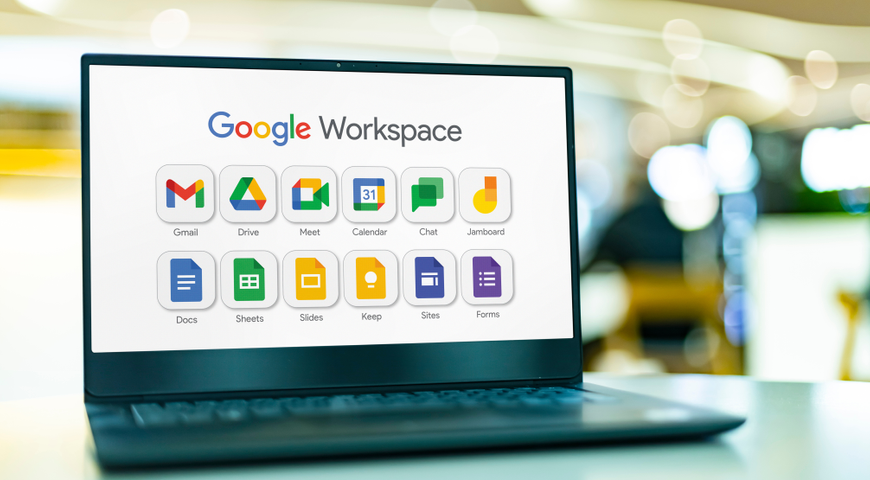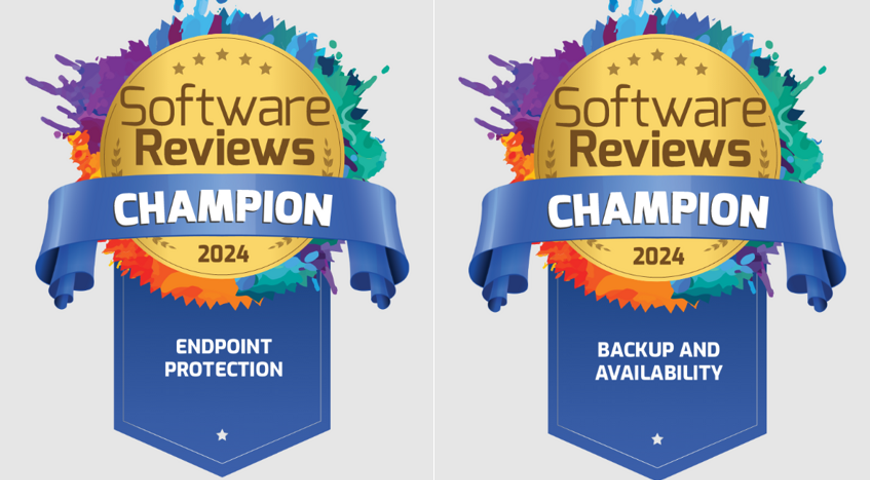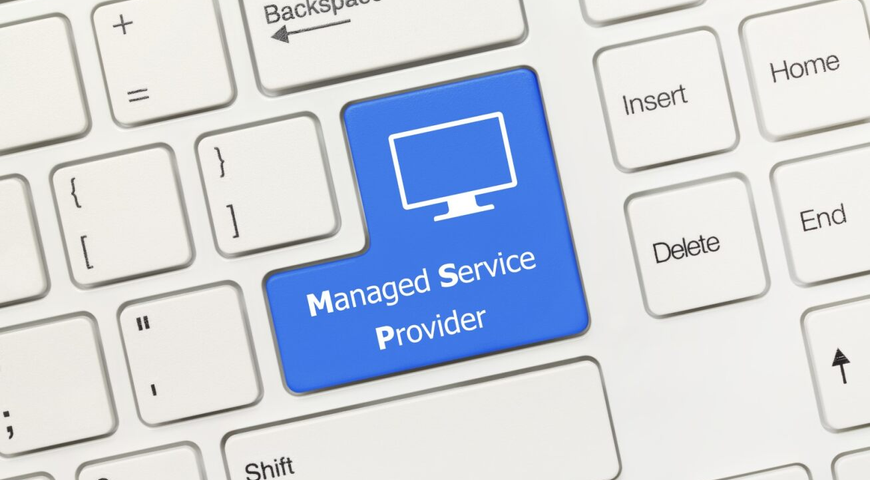
As an MSP, protecting your clients’ sensitive data, managing security infrastructure, and ensuring business continuity is critical to the growth and profitability of your service. Making sure all your clients’ critical assets, systems, and networks are protected is one of the greatest challenges service providers face. This has made even more difficult as more businesses adopt office productivity suites like Google Workspace (formerly G Suite). Many of your clients are likely unaware of the insufficient protection Google’s built-in backup and recovery provides.
This article covers the key cybersecurity and data protection challenges associated with Google Workspace, as well as best practices on how your MSP can secure client data and be empowered to kick off valuable discussions with your clients. These discussions should draw awareness to your clients’ cyber risk when using Google Workspace to house, share, and aggregate data.
What is Google Workspace?
Businesses of all sizes worldwide use Google Workspace to store, provision, organize, alter, and transfer valuable office data. Google Workspace is a popular office productivity suite that allows organizations to consolidate processes and simplify collaboration between internal stakeholders and external parties. The productivity suite includes Gmail, Calendar, Drive, Forms, Google Docs, Sheets, and more.
The importance of Google Workspace backup and recovery
According to the Acronis Cyberthreats Report 2023, the number of ransomware detections increased 6% in Q1 2023 over Q4 2022. In such a short span of time, we see these attacks impacting businesses diverse in size, vertical markets, resources and cyber maturity. Regardless of these factors, it’s critical that your clients understand the inherent risks associated with using Google Workspace while lacking a third-party data protection, backup, and recovery service.
Before your clients entrust their valuable data with Google Workspace tools, they should know Google follows a shared responsibility model, outlined in Google’s Cloud Enterprise Privacy Commitments policy. Educating your clients on the drawbacks of Google’s native backup and recovery tools will be valuable to ensuring the success of their cyber risk management and data loss prevention efforts. Moreover, as an MSP, starting these important conversations positions your service as a trusted advisor, fostering stronger relationships with clients and helping your technicians be seen as an extension of their team.
The top five business risks of not having Google Workspace backup and recovery
If your clients are avid users of Google Workspace tools, you’ll want to provide efficient protection, backup, and recovery. Without full-fledged data protection, your client’s small business runs the risk of data loss commonly caused by human error, corruption, breaches, or natural disasters. Starting valuable conversations with your clients is imperative to strengthening their organization’s cyber resilience.
We recommend sharing with your clients the top five risks related to insufficient protection in Google Workspace environments.
Failure to qualify insurability standards
One of the common factors contributing to a business’s inability to qualify for cyber insurance is failure to back up regularly. Although many cyber insurance policies may not specifically state requirements to back up Google Workspace environments, it’s a good idea to consider implementing backup, protection, and recovery in these data-rich environments.
Insurers are cracking down on businesses with lax cybersecurity measures. They are frequently rejecting insurance policies because they unknowingly neglect critical areas of protection, posing liability to agencies and threatening their profitability. You should stress the importance of backups to your clients, and work with them on instilling industry best practices for data protection and qualifying for cyber insurance.
Cyberthreats
Unprotected data in Google Workspace is an attractive target for cybercriminals. Failing to adequately safeguard Google Workspace data can result in noncompliance, leading to expensive fines and legal repercussions. By demonstrating a proper backup strategy, your MSP clients can better adhere to industry-specific regulations.
Intellectual property and data loss
Forgoing comprehensive data protection measures like backup and disaster recovery puts your clients in harm’s way. Whether caused by accidental deletion, system error or nefarious activity, data loss can have irreversible consequences on your clients’ business — the aftermath of which leads to disastrous financial, reputational and operational damage.
Downtime, operational disruption and lack of business continuity
When clients experience data loss, it can cause widespread disruption to operations to both their employees and your security technicians. Time spent tracking down lost data and deciphering whether or not it can be restored is valuable time wasted for both your MSP and your client . Any disruptions to your clients’ uptime harms productivity and revenue.
Following a cyberattack, your clients may experience severe data loss. And having to perform incident response and recovery efforts distracts service provider technicians from delivering services to other valued clients. As a whole, handling cyber incidents and data loss that could have been easily avoided takes the attention away from your business needs and objectives.
Reputational damage
Once your client has been hit with data breach, they can suffer severe reputational damage, which could makes it incredibly difficult to regain their customers trust. Customers entrust businesses to store and handle their personal data. All too often, once business-customer relationships erode, it it can be impossible to mend the business’ reputation and loss of credibility with clients, partners, and stakeholders. As an MSP, you have the influence to help your clients’ understand technical security risks, while dually empathizing with your clients’ business-level risks to help your team.
MSP's role in Google Workspace backup and recovery
With efficient backup and recovery solutions, MSPs can ensure the integrity, security, and recoverability of their clients’ Google Workspace data. Your support and expertise will be essential to tackling the challenges associated with data protection in cloud environments.
Let’s explore the top benefits your MSP should back up and recover your clients’ Google Workspace data.
Strengthen MSP–client relationships
By embracing the role of a thought leader, your MSP’s team is positioned as a trusted expert in cyber protection, which allows your team to play an influential and impactful role when protecting your clients’ digital ecosystem, including Google Workspace. Once a strong partnership is established with clients, you become a go-to resource for their business, opening more opportunities to demonstrate your knowledge and expertise. Through meaningful discussions, you can better close security gaps and start new conversations to introduce cutting-edge technologies that can lead to your MSP’s increased revenue and profitability.
Develop tailored data protection strategies
MSPs know that each business encounters a unique set of data protection problems, needs, and compliance requirements. Your MSP should be well versed in best practices and compliance regulations governing data protection in your clients’ industry. Working closely with your clients, your team can thoroughly assess their current data infrastructure, identify critical assets, and curate well-structured backup strategies focused on defending their most high-priority assets. This process ensures your clients and your MSP technicians don’t waste valuable resources backing up unnecessary data and concentrate on safeguarding what truly matters, including high-value data in Google Workspace.
Recover your clients faster
In the event of a breach or data loss, your MSP can recover Google Workspace assets rapidly and minimize your clients’ downtime. The ability to efficiently restore critical data, emails, documents, and configurations allows businesses to quickly resume operations, minimize disruptions to daily operations, and bolster productivity. Defending your clients’ business continuity gives your MSP a competitive advantage to attract new prospects and grow the security maturity of existing clients.
Promote growth, scalability and adaptability
Your service protects a variety of businesses, including vertical markets. And as these businesses grow, their data needs will expand in tandem. Whether your clients decide to use Google Workspace or introduces new applications, your MSP needs to be equipped to scale backup and recovery accordingly.
MSPs: How to explain data loss scenarios in Google Workspace with your clients
Explaining data loss to your clients is a sensitive topic but a necessary discussion. When it comes to Google Workspace, you can use scenarios, like accidental deletion, to highlight the consequences of operating a business without a reliable backup solution. Your MSP can help your clients understand how data loss due to human error underscores the importance of having proper safety nets, like security awareness training and regular backups, in place.
How to choose the right Google Workspace backup solution?
When evaluating Google Workspace backup and recovery solutions , you’ll want to carefully consider a few key factors. The objective should be to choose a solution that not only reliably and efficiently backs up your clients’ Google Workspace data, but also doesn’t slow down your technicians and can be easily deployed, managed, and configured across all your clients.
Here’s what you should look for when considering a Google Workspace backup and recovery solution:
Comprehensive data security
Comprehensive backup and recovery should cover all of Google Workspace, including emails, files, calendars, and other types of data. The solution should offer granular level restoration capabilities that allow you to recover specific files or folders without having to restore entire datasets. Through this added flexibility, your will greatly minimize your clients’ downtime and ensure data recovery is methodical and holistic.
Additionally , leveraging a solution that records log events of all backups will be critical to verifying log-data accuracy and coverage of activity in the cloud before performing a restore. Other features like data encryption, immutable backups; proactive, active, and reactive data security measures; and a variety of extensive capabilities offered in solutions like Acronis Cyber Protect Cloud will help your service deliver holistic, robust protection to clients.
Usability and ease-of-use management
Implement a backup and recovery tool that’s easy to manage and offers a user-friendly interface which simplifies the setup, onboarding, monitoring, and management of backups across your clients’ organization. With so many endpoints, systems, servers and other infrastructure in play, you’ll want to ensure your MSP can efficiently configure backup schedules, monitor the protection of backups and rapidly restore data when needed in Google Workspace environments and beyond. Integration and automation help service providers streamline workflows and reduce operational complexity.
Customizability for your clients’ needs
Service providers should consider whether the level of flexibility in a solution allows them to tailor protection to their clients’ needs. This includes requirements relevant to scalability, configurability, and regulatory compliance.
For scalability, you’ll want to choose a backup solution that’s compatible with your clients’ growing data without compromising performance or the security integrity of their data. In terms of configurability, you’ll want to choose a backup solution that can easily be configured and is adaptive to diverse, changing business needs. Your clients will range in bandwidth, resources, and the technological ecosystems in place.
Your service’s ability to accommodate different platforms, databases, and file systems – on-prem and cloud infrastructure – will help you spotlight your versatility. When it comes to compliance, some industries have stricter regulations centered on data security and retention. You’ll want a solution that can be customized to define your clients’ backup workflows and adheres to industry standards, facilitating audits and avoiding legal risk.
How to implement Google Workspace backup and recovery?
Once your MSP has found the right solution, getting started with Google Workspace backup and recovery involves taking a structured, layered approach to data protection to ensure seamless restores and mitigate risk of data loss to clients. Moreover, educating your clients, their executives, and stakeholders on the importance of protecting, backing up, and recovering Google Workspace data will be a fundamental building block for success and business continuity.
The open lines of communication between you and your clients will not only help engage employees in data protection efforts, but also help your technicians fine-tune backup strategies to adapt to your clients’ evolving needs and address open security gaps. With solutions like Acronis Cyber Protect Cloud, your MSP can take a proactive stance against data loss with reliable, efficient and comprehensive data backup and recovery. This all-in-one solution brings horsepower to your service’s delivery, performance, and growth, while enhancing cyber resilience to clients without complexity.
About Acronis
A Swiss company founded in Singapore in 2003, Acronis has 15 offices worldwide and employees in 50+ countries. Acronis Cyber Protect Cloud is available in 26 languages in 150 countries and is used by over 20.000 service providers to protect over 750,000 businesses.




